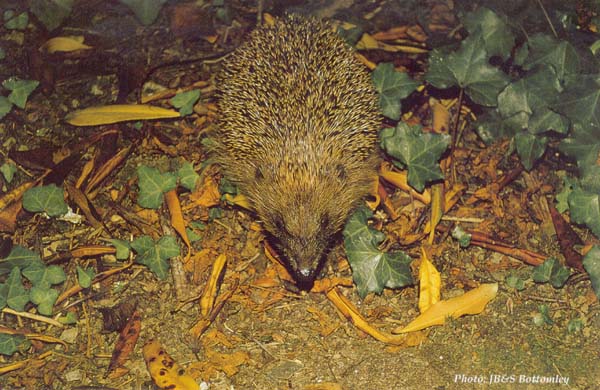
Nature news
The news from the Specialist Groups is always interesting and informative. If any of the items below tempt you to want to find out more about specialist wildlife groups in Cornwall, check the inside front cover of this magazine for some useful contact numbers. Look out, also, for Specialist Group events in the Diary on pages 15 to 18.
Mammal Group
Are there hogs in your hedges? Hedgehogs - facts
• Hedgehogs {Erinaceus europaeus) are very similar to pigs in the way they root noisily through the undergrowth searching for food, hence the name hedgehog.
• They have been around for nearly 20 million years, at least twice as long as the mammoth!
• An adult hedgehog has between 5/000 and 7/000 spines.
• Although hedgehogs do carry a lot of fleas/ they are fleas specific to hedgehogs and therefore do not survive on our pets or us!
• Average home range 90/000 square metres!
• They eat up to 70g of food per night/ usually slugs/ snails/ beetles and earthworms.
• During hibernation their heart beat falls from 190 to 20 beats per minute.
• The badger is the hedgehog's
main predator/ humans are its main threat: cars/ lawn mowers/ pesticides and slug pellets.
Feeding - dos and don'ts Don't
• Don't feed hedgehogs bread and milk/ it gives them diarrhoea.
• Don't feed hedgehogs fish-based foods.
• Don't use slug pellets or poisons in your garden if you know
hedgehogs are about/ as this will in turn poison the hedgehog.
Do
• Maintain damp/ untidy grassy areas of the garden where hedgehogs can look for food and also rest.
• Ideally the best food to feed
hedgehogs is specially formulated hedgehog mix/ available from wildlife feed retailers.
• Do feed them cat or dog food/ but in moderation and preferably dry/complete foods rather than tinned food.
• Leave a bowl or saucer of water out for them to drink/ rather than milk.
Alex Howie